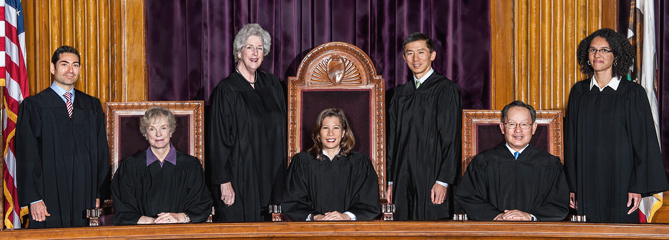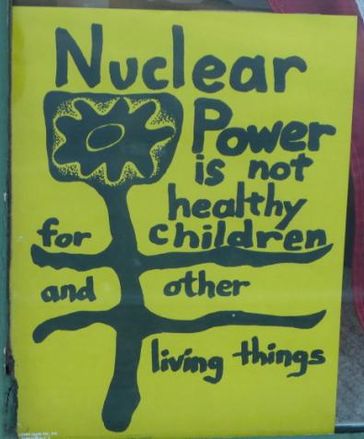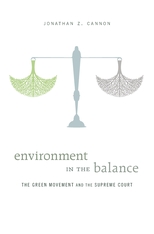Litigation
Sacramento Judge Halts California Regulator’s Efforts to Impose Water Cutbacks
Court Rules Water Board’s Administrative Process Violates Water Users’ Due Process Rights
A Sacramento judge has thrown a wrench into the California State Water Resources Control Board’s efforts to impose water cutbacks on several of the state’s senior water rights holders. In a July 10th order, Superior Court Judge Shelleyanne Chang ruled that the Water Board’s administrative process, designed to implement drought-based water reductions, violates the due …
Continue reading “Sacramento Judge Halts California Regulator’s Efforts to Impose Water Cutbacks”
CONTINUE READINGClem Shute to be honored by California bar
Boalt alum will follow Joe Sax as second recipient of environmental law lifetime achievement award
This just in, courtesy of Shute, Mihaly & Weinberger — Clem Shute (Boalt ’64) will be honored this fall with the second Award for Lifetime Contribution to the Field of Environmental Law. (The first Award, of course, went to the late Joe Sax.) Clem richly deserves this prestigious award. He has been a major player …
Continue reading “Clem Shute to be honored by California bar”
CONTINUE READINGMichigan v. EPA: Policymaking in the Guise of Statutory Interpretation
In Michigan v. EPA, the majority followed its own policy views, not those in the statute.
The majority opinion by Justice Scalia has gotten most of the attention. Most notably, he wrote that “[o]ne would not say that it is even rational, never mind “appropriate”, to impose billions of dollars in economic costs for a few dollars in health or environmental benefits.” Indeed, “[n]o regulation is ‘appropriate’ if it does significantly …
Continue reading “Michigan v. EPA: Policymaking in the Guise of Statutory Interpretation”
CONTINUE READINGInjecting Earthquakes
The scientific evidence shows a clear link between injection wells and earthquakes. The legal consequences are less clear.
A recent study of injection wells and earthquakes got a lot of press, but the reports missed an important nuance. The study, published in the June 19 edition of Science, found a definite connection between well injection and earthquakes. But there was an interesting wrinkle: “The scientists found that disposal wells were 1.5 times more likely to …
Continue reading “Injecting Earthquakes”
CONTINUE READINGDrought and the Supreme Court
Does the Court’s Decision in the Raisin Case Imperil Water Management?
When I first read Rick’s writeup of the Supreme Court’s decision in USDA v. Horne, concerning the federal government’s Depression-era system of “marketing orders” that required farmers to set aside a percentage of their raisin crop in a government-controlled account, I was worried about water. And that’s not just because I always worry about water. Horne turned on …
Continue reading “Drought and the Supreme Court”
CONTINUE READINGBreaking News: Supreme Court Rules Federal Agricultural Program a Taking
Justices Uphold California Raisin Growers’ Fifth Amendment Challenge
The United States Supreme Court today ended a David-and-Goliath-style, 10-year legal battle between a pair of California raisin growers and the federal government, declaring that the government triggered a compensable taking of the growers’ private property when a federally-controled agricultural board ordered seizure of a portion of their crop. The Court’s decision can be accessed …
Continue reading “Breaking News: Supreme Court Rules Federal Agricultural Program a Taking”
CONTINUE READINGCalifornia Supreme Court Upholds Affordable Housing Ordinance
Unanimous Court Rejects Developers’ Takings Challenge to San Jose’s Inclusionary Housing Measure
The California Supreme Court, in a unanimous decision issued today, rejected state developers’ efforts to nullify the City of San Jose’s affordable housing ordinance. That decision, California Building Industry Association v. City of San Jose, is critically important for both state land use policy and for constitutional principles governing private property rights and the proper scope …
Continue reading “California Supreme Court Upholds Affordable Housing Ordinance”
CONTINUE READINGClean Air versus States Rights
A sleeper decision by the D.C. Circuit upholds federal air pollution authority.
The D.C. Circuit’s decision last week in Mississippi Commission on Environmental Quality v. EPA didn’t get a lot of attention, despite having a very significant constitutional ruling. Since the constitutional discussion doesn’t start until about page seventy, after many pages of scintillating discussion of matters like the reliability of private air pollution monitors and the …
Continue reading “Clean Air versus States Rights”
CONTINUE READINGAbalones and Gulls and Judges, Oh My!
Comparing the Mono Lake Committee with the Abalone Alliance
For several months now, I have been looking for a good comparison case to the Mono Lake Committee, whose work is one of the great success stories of the modern environmental movement. Why did the Mono Lake Committee succeed when other organizations failed? Lots of organizations had good causes and dedicated leaders: what made Mono …
Continue reading “Abalones and Gulls and Judges, Oh My!”
CONTINUE READINGCulture Wars at the Supreme Court
A new book examines the roots of judicial conflict in environmental law.
Views on environmental issues are related to broader culture differences. According to social scientists, environmentalists tend to be egalitarian, believe in harmony with nature, and stress responsibility over autonomy. Their opponents, who are skeptical about regulation, tend to favor traditional hierarchies, believe in human mastery of nature, and stress autonomy over responsibility. Jon Cannon’s new book, Environment …
Continue reading “Culture Wars at the Supreme Court”
CONTINUE READING










